The case of: Sugar & Artificial Sweeteners VS. Stevia, Raw Honey, Maple Sugar Flakes & Cocoa
Sugar
This poison is over-processed to attain that ultra-fine, bleached white substance that holds ZERO nutritional value. This substance has no vitamins or minerals and is hard for the body to digest. Table sugar is made up of sucrose and is so processed that our body has to draw upon its own enzymes to break it down. That means the body is taking enzymes and minerals from areas in our body that need it, such as from our bones.
Let’s not forget the incredible spike it created in our body sugar levels. Once this chemical is consumed, your blood sugar will surge, causing your insulin levels to spike. Insulin levels are important to understand as this hormone is a storing hormone that will cause you to store the enormous amounts of calories in the sugar.
What happens to sugar once it is ingested?
After the liver is done storing all the sugar it can, the excess is returned to the blood to form fatty acids. These fatty acids are then stored in the most inactive parts of the body, belly buttocks, breasts and thighs. When these areas are filled up, the fatty acids are then distributed among the active organs (heart, liver, kidneys), increasing the risk of developing diabetes (TheDietSolutionProgram.com).
The creators of sugar should be sued for millions of healthcare dollars and legally banned from production.
Artificial sweeteners
Another arsenal, created with chemicals and just as sugar, holds ZERO nutritional value. Our bodies perceive artificial sweeteners as a foreign substance. It doesn't know what the heck to do with it. There has also been research to show that use of sweeteners can cause increased cravings that result in overeating.
VS
Organic Maple Sugar Flakes
With a teaspoon having half the calories of a teaspoon of sugar, organic maple flakes are 100% pure organic maple syrup that has been freeze-dried at an extremely low temperature and made into small flakes. It dissolves fast, is sweet, and adds that great maple flavor as well.
Stevia
This herb is up to 300 times sweeter than sugar and is almost calorie free and has no effect on blood sugar levels. One teaspoon can be as sweet as one cup of refined sugar. There is non toxic components and is safe to use.
Raw Honey
A teaspoon a day keeps the bacteria away. Raw honey is an effective anti-bacterial, anti-viral and anti-fungal. Different varieties of honey contains a large amount of friendly bacteria. Honey has been shown to be an effective cough suppressant for children. Honey boosts immunity and has been proven to improve the quality of life of cancer patients.
Experimental evidence indicates that consumption of honey may improve blood sugar control and insulin sensitivity compared to other sweeteners. Honey is low on the glycemic index, meaning it will not cause blood sugar to spike.
Cocoa
Cocoa contains a large amount of antioxidants (flavonoids). Flavonoids also reduce the blood’s ability to clot and thus reduces the risk of stroke and heart attacks. Cocoa beans are rich in a number of essential minerals, including magnesium, calcium, iron, zinc, copper, potassium and manganese and also contain vitamins A, B1, B2, B3, C, E and pantothenic acid.
Interestingly enough cocoa beans also contain stimulants creating a slight antidepressant effect. And it that’s not all, this amazing bean also carries a mild diuretic effect as well.
You can have your cake and eat it too!
It should be a no brainer when it comes to sugar and artificial sweeteners. JUST SAY NO! There are plenty of delicious and nutritious substitutes that will help transform your figure and insides too.
Let me know your favorite recipes with the sugar substitutes above!


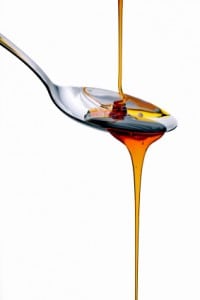
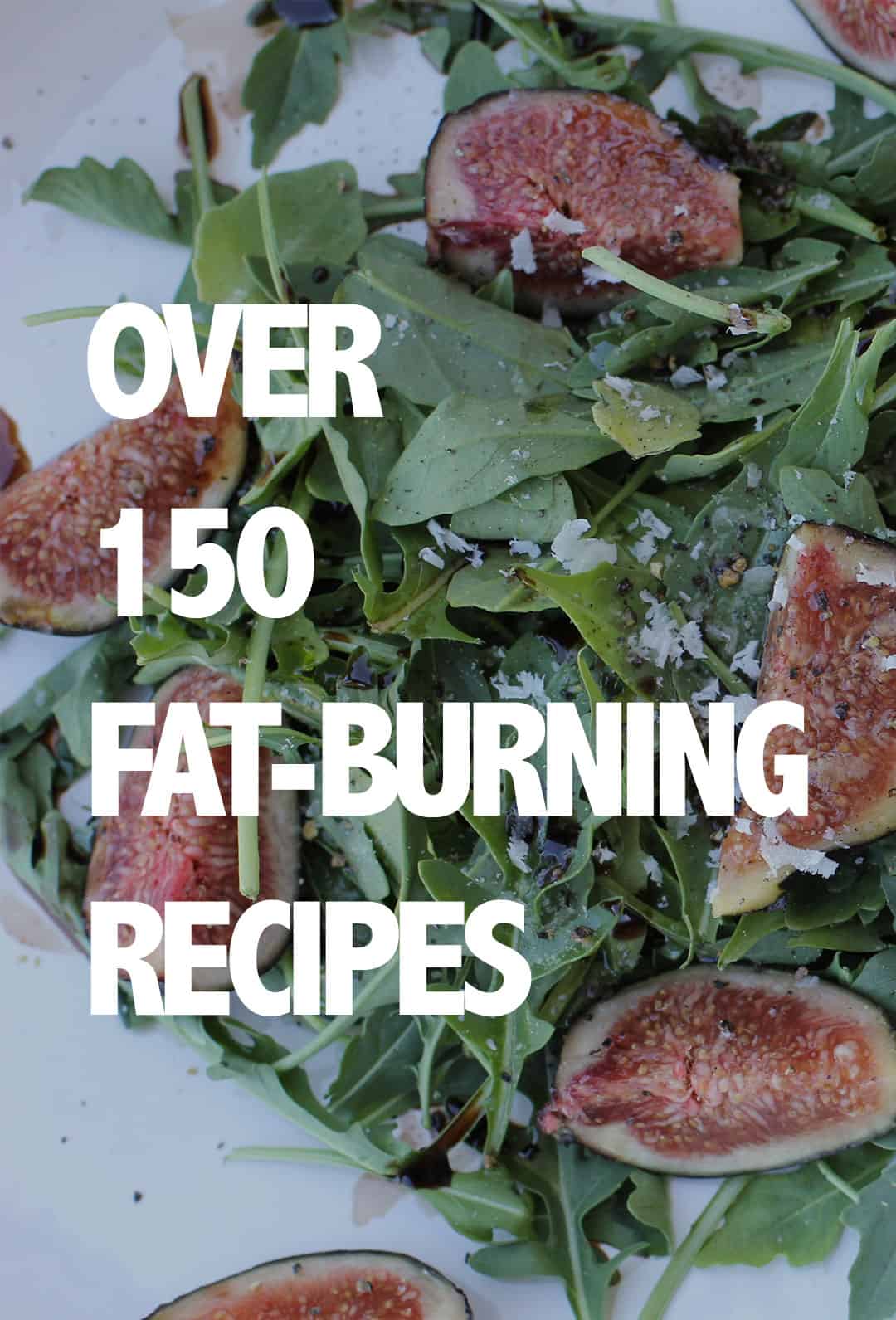
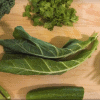
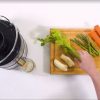
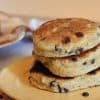


Hi Flavia, is brown sugar bad too?
Yes, all brown sugar is, is molasses added to white sugar 🙁
Good information! I eat organic food and only use the natural sweetners you have listed above.
Keep up the good work Flavia!
Victoria
Try a raw foodist delight called Chocolate Bliss sweetened with Vanilla Bean Agave… at http://www.highvibehealth.com
It is delicious, healthy and really good for you!
hi Flavia –
I find Stevia too sweet and hard to control portion-wise (eg you can’t just scoop a teaspoon into your tea, as that amount is WAY too sweet, etc). Do you know about Xylitol which is touted as a 100% natural sweetner? I like it because it is just like sugar (eg just as sweet as a teaspoon of sugar) and looks like sugar, so easy to monitor/use. But what do you think of it health-wise?
Thanks, Ann from Australia
Xylitol is a good substitute also. This is a sugar alcohol that is extracted from fruit. The problem with it is, it causes bloating, abdominal distension and flatus. It also has a laxitive effect if taken in large amounts. If you don’t get any symptoms for this, this is a good option. It is safe for breast feeding and doesn’t cause a spike in blood sugar levels.
So would a cup of hot cocoa with almond milk be a great dessert?
Yes! Perfect.
Nice post. I like the fact you use the term “fat loss”. I hate when the so called experts are still using weight loss and a scale to judge results. Such products surely helped a great deal in my zeal to control and lose weight effectively along with the perfect and ideal diet and proper exercise program that I stick to very faithfully. I really enjoyed reading about the Laws of Fitness. I learned a lot reading it, that’s for sure! Thank for sharing.
Dear Flav, thank you for your no-nonsense way of way explaining food items and recipes. This is indeed interesting!
Hi Flavia,
Love your articles! They are so informative and helpful, so please keep them coming…
Are Organ Maple Flakes and Stevia available in Canada? I can’t say that I have ever seen either one at the health food store that I go to.
Please le me know where these products are available. If they are available online, do they ship to Canada? Problem is always the shipping costs, plus tax that make these products prohibitive to most Canadians. Although some websites do offer free shipping of their products when over a certain price.
Thanks
They are made in Canada but I found some on this website: iGourmet.com I have yet to try them and it is the perfect season to have them here in Canada!
This is for you Wendy about Stevia—- This is available in Canada at any Superstore, Walmart and Extra Foods at their Pharmacy sections.I had been using Stevia for the last 5 years as my father likes sweets in his coffee or tea.He has gout and in my research about the disease, artificial sweeteners are not recommended so Stevia top the list of the natural sweetener.I don’t think that it prevents the attack of his gout but it certainly satisfies his taste for the sweet.
Boy, are you going to open up a can of worms with this one :). I know Joel did when he posted a series on artifical sweeteners a while back.
Personally I think this is tricky issue, and at the very end, it all comes down to personal believes. Myself, I try to use Stevia whenever possible, and I especially love their flavored liquid bottles that can put a spin on just about every dish.
That being said, I think Joel made a very good point in his blog post (I would link to it if I knew how) in terms of that I think that 90 % of the research that has been done on artificial sweeteers are crap. First of all, the majority of the research that has shown artifical sweeteners to be harmful have been done on rats that have many times have been fed thousands of dosages above the daily recommended intake for HUMANS! In a rat body, I don’t know how many million percentage of excess that makes, suffice to say it’s alot.
Personally, I don’t think that qualifies as good research. For obvious reasons, similar studies contucted on humans have not been made (thank God!), but there are several studies done on humans that supports the very opposite of this argument, showing an increased weight and fat loss in the group who used artifical sweeteners, as well as feeling more satisfied on their diets.
My bottom line here is that you will always find research to back up your arguments if you look for it.
I’m 8 weeks out from my first figure competition and my sweet tooth is a major challenge in contest prep. While I like the natural approach and of course keep a clean diet, all of the substitues posted above – apart from stevia, are off limits to me right now as they are still for all intenses and purposes sugar and hold a lot of calories unless you’re talking about a teaspoon or too in you coffe.
I love to bake and cook and I would never make it through without my substitues and they privde me with so much more flexibility and makes staying on track so much easier. As I mentioned before, the majority of it consists of Stevia and I definetely don’t stuff myself full of sweetened stuff everyday. But – until there are more GOOD, RELIABLE studies made in HUMANS that shows harmful results, I will continue to enjoy my occasional diet pop, crystal light and other sweetened substitutes that is going to help me see this challenge through.
Thank you for a good post, I think this will turn into a very interesting discussion 🙂
Thanks! I know Joel would argue with me on this one for sure. I must say I like his arguments and want to believe them because that would make life a lot easier and cheaper 🙂
Dear Flavia Del Monte,
Thank you for all your fantastic health and fitness tips. This one in particular is very interesting to me as I seldom eat sugar but have been relying on artificial sweeteners to spice up my teas and coffees. I have consoled myself with the fact that no hard evidence has yet been raised to indicate that the artificial sweeteners will have a specific ill affect, but I have not been able to forget that they are still chemicals.
You have reminded me to shop more carefully to appease my sweet tooth and have given me a couple more options to do so. Thank you for your work and dedication!
Regards,
~Naduah B. Rugely
I’ve been using Boresha Internationals BSkinny acai Sweetner…it’s fine granualated, looks and tastes and more importantly tastes like the real thing. It is recommended or diabetics and really anyone wanting to use an organic, natural weetner alternative to be healthy! http://www.truecare.Bfreesystem.com
Great article. I use stevia, raw honey, and cocoa on a regular basis…but had never heard of maple sugar flakes before. I will be looking for them on my next trip to the health food store. If I can’t find them, is there a website you recommend to order them?
I was excited when I found this on iGourmet.com
Hi Flavia!
Received your FBLW hard copy and I am enjoying every minute of the workouts! I have a question..What about Truvia? To me, Stevia is an aquired taste. Would Truvia be okay to sub for Stevia?
Keep up the awesome tips, videos and infos!
Kind regards,
Margaret 🙂
As far as I have read, Truvia seems to be good. It has a sugar alcohol componant but it seems to be ok with digestion/absportion and doesn’t cause tooth decay. I have studied it excessively though.
What do you think of agave nectar?
Agave nector is a commerically made sweetener and contains frutose and glucose. It isn’t as bad for you as the other sweetners but still has a small effect on blood sugar levels. This still is a better choice than sugar but there are better choices than agave nectar.
I regularly use Organic Raw Blue Agave. The only ingredient listed is Organic Amber Agave Nectar. Good choice? What do you think?
see other comment about agave nectar
Hi Flavia,
Just wanted to make a note that infants should not be fed honey. You have it listed as a cough suppressant and I just want to make sure people are aware of the potential dangers with honey. Due to the natural presence of botulinum endospores in honey, children under one year of age should not be given honey. You list raw honey, but even then, one should be absolutely sure that their source of raw honey has not been cooked. Even if the label of the honey says it is raw, it can still be heated above 96 degrees during processing. To be on the safe side, I would caution giving raw honey to infants under one year of age. If you want to pursue the source of your raw honey, call the company who packages it to find out about the temperature during processing. Another option is to purchase honey locally and visit their establishment to observe their packaging techniques, as well as the safeguards which assure that it is not heated during processing.
Yes for sure.
Hi Flavia,
I haven’t had a chance to come to your site in awhile, but wanted to thank you for this article. 🙂 Could you tell me where you got your source/info for “honey”…specifically the “anti-viral, anti-fungal, anti-bacterial” info? I personally use raw local honey for a lot of my baking as it’s easier for me to digest and I agree it has more medicinal properties, but I sometimes have trouble convincing others so…that’s why I’d be curious as to your source. 😉 I also use Stevia and Stevita (a blend of stevia and xylitol). I can only use xylitol in small amounts for the reasons you describe. The best brand I have found is SmartSweet, but dog/pet owners need to be careful when using xylitol as it can be fatal to your furry loved ones if they consume it. Could you also, tell me what brand of Maple Flakes you use? I haven’t been able to find them where I live. I have trouble digesting pure maple syrup, but the flakes might be a better option for me and easier to control the amount.
I’ve also been using pureed dates (making a sort of paste with soaked dates and water) in place of the agave. I am loving coconut sugar which is a sugar produced from the sap of cut flower buds of coconuts. It has a carmel like taste and I’ve been using it as a subsitute for brown sugar. It’s low on the glycemic index as well. I’m hoping to experiment with it more and use it in place of agave (which I don’t use) and even the dates.
Thanks for the info! 🙂
~Amy
I found the info on honey here: http://www.whfoods.com/ and maple flakes at igourmet.com. Great idea about pureed dates. I will have to try that 🙂
Hey Amy,
where do you get your coconut sugar? it sounds really good, I heard about it on the beyond diet website but haven’t been able to find any.
Hi Anna,
I’ve been using Coconut Secret Raw Coconut Crystals. I found it at Earth Fare, but I believe you can find it at Whole Foods as well. You can also purchase on-line at Amazon: http://www.amazon.com/Coconut-Secret-Crystals-Raw-12-Ounce/dp/B003XBBAUM/ref=sr_1_2?ie=UTF8&qid=1318292054&sr=8-2
I LOVE it and have had great success using it. Tastes great, easy to bake, with and easy to digest and just a healthier alternative all around. 🙂
~Amy
Thanks so much, I’ll have to get me some!
How about black strap molasses or black treacle as its known in the UK?
I found about it recently when I was diagnosed as being anaemic since they are high in iron, calcium and other minerals. I realise that they are a sugar byproduct but they seem to still contain all the useful parts of the sugar cane. I found that they have helped with my anaemia as well as improved my digestion and reduced my sweet tooth!
You do have to work to get used to the taste though!
more info to be found here:
http://www.whfoods.com/genpage.php?dbid=118&tname=foodspice
From what I have read about it, it provides nutrients. I wonder how it affect blood sugar levels?
i’m not sure – a 21g tablespoon is quoted as having 13 g of sugars – which I guess would have an impact.
What about evaporated cane juice?
For sure better than sugar, it still is refined but as much as sugar so you wont lose too many nutrients. I’d use it sparingly.
ok, thanks I don’t hardly ever eat it, It is just one of the ingredients in chobani vanilla greek yogurt which I like to enjoy on my treat days so I was just curious 🙂
Hey, Flavia,
Another thing you guys could do (for a healthy, cheat day treat only, of course! 😉 ) is this:
Take milk, put it in a small bowl, and warm it up for a minute or so (so it doesn’t boil, but still gets warm).
Take dates, cut them in half to take away the pit, and cut them into little pieces into the milk.
And now add dried fruit, etc (optional)
Voila! A warm, healthy-ish treat that is sweet, delicious, and doesn’t take long to prepare.
By the way, some people like to use sugar to make it sweeter—and boy, is it ever sweeter!— but honey (a spoon or two) will suffice.
I (and many others) use this treat after a day of fasting in Ramadan, in cold COLD COLD Canadian evenings.
Enjoy!
Thanks Alla, I don’t recommend milk but for those who drink it, thanks for sharing.
I do think that you just merely strike the claw about the brain with this distinct article